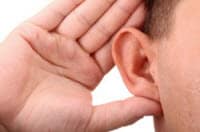 Someone once said that there’s a reason we are given two ears and one mouth. The implication being, we should listen more than we speak. It can be a challenge to learn to listen as an executive or business owner. But the good news is, listening is a “learned skill” and becoming a better listener is totally worth the effort.
Someone once said that there’s a reason we are given two ears and one mouth. The implication being, we should listen more than we speak. It can be a challenge to learn to listen as an executive or business owner. But the good news is, listening is a “learned skill” and becoming a better listener is totally worth the effort.
Most executives or business owners are often in the spotlight and expected to be the one leading the conversation, having all the answers and driving the conversation. Therefore, often times that expectation pushes people into constantly and consistently being in the speaking role, rather than the listening role. From my experience as a business coach, being a good listener is one of the top five competencies a leader must have in order to be successful. Because for employees (and all of us), there is nothing quite as satisfying as being heard. It’s the first and foremost way to nurture the creative, imaginative and impassioned energy in our employees. An excerpt from the essay, “Everybody is Original” by Brenda Ueland, states:
“…this joyful, imaginative, impassioned energy dies out of us very young. Why? Because we do not see that it is great and important. Because we let dry obligation take its place. Because we don’t respect it in ourselves and keep it alive by using it. And because we don’t keep it alive in others by listening to them.”
What are some things we can do to improve our listening skills?
1-Become an Active Listener-Use eye contact and “listening” body language. This includes looking directly at the speaker without staring, giving them eye contact, and your full attention. Avoid looking at your watch, at other people, your computer or cellphone, or other activities around the room. Lean toward the speaker, showing them you are fully aware of their speaking and their words. Provide feedback with your body, nodding your head as it is appropriate.
2-Be empathetic and non-judgmental-When you value the speaker and accept the speaker’s feelings you will be able to empathize more fully, to “hear” more clearly and completely. Forego judgments. Be present with the speaker, so you can hear, comprehend and understand what they are saying.
3-Paraphrase/Tell Back-Listen so intently that you are able to paraphrase back what the speaker told you. For example, you might say, “What I heard you say was…” When you can “tell back” (not necessarily in the “exact” words, but in similar words) what the speaker has said, this lets them know you have truly heard them.
Too few people really “hear” what others say. To quote Ueland once again from her essay, “The Art Of Listening:”
“Remember, it is not enough just to will to listen to people. One must really listen. Only then does the magic begin.”
Listening is an art, and a gift you give to others, and a skill that’s very worth acquiring.

